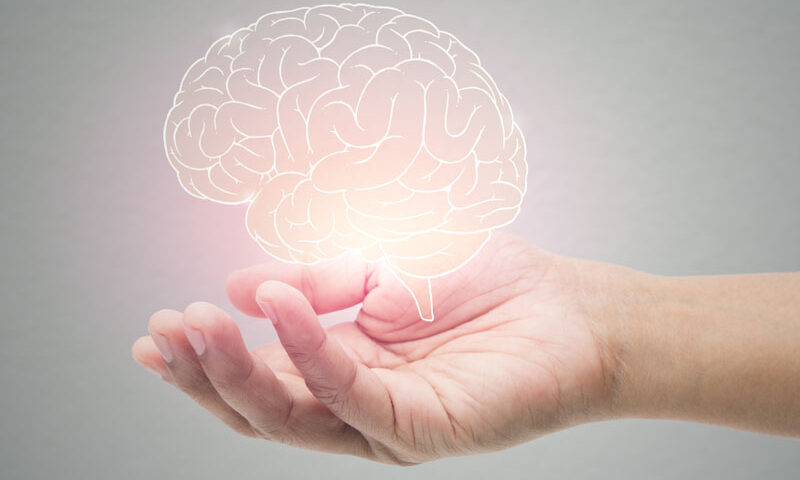Disorders about the structure or function of the nervous system are referred to as neurological disorders. This includes the brain, spinal cord, nerves, and other related structures. These diseases can be caused because of a wide range of reasons, including immune responses, trauma, infections, genetics, and environmental factors.
Neurological disorders cover a wide spectrum of diseases affecting the brain, spinal cord, and nervous system. These illnesses can have a substantial impact on the daily functioning of people, thus causing deficits in mood, behaviour, and even physical and cognitive abilities. It is critical to understand the causes, symptoms, and available treatments for neurological disorders to promote early diagnosis, effective treatment, and improved quality of life for those affected.
Types of Neurological Disorders
Many neurological disorders can affect different aspects of the functioning of the nervous system. The following are the common types of neurological diseases:
Neurodegenerative disorders: these are disorders that deteriorate with time and are characterized by a gradual but constant loss of nerve cells. Examples of such disorders are Alzheimer’s disease, Parkinson’s disease, and amyotrophic lateral sclerosis (ALS).
Stroke: Damage or even death of brain cells can occur when blood flow to a section of the brain is interrupted. Haemorrhagic strokes, which result from bleeding in the brain, and ischemic strokes, which are brought on by clogged blood vessels, are the two main types of strokes.
Epilepsy: Epilepsy is a neurological illness characterized by recurrent, abrupt, uncontrollable electrical disturbances in the brain.
Multiple sclerosis: MS is an inflammatory illness that affects the protective sheath that surrounds nerve fibres, causing inflammation, demyelination, and interference with nerve signals as part of the defence mechanism of the body.
Headaches and migraines: These common neurological conditions are recurrent headaches or neck pain. For instance, migraines cause intense pain that is often followed by other symptoms including nausea, vomiting, and light and sound sensitivity.
Movement disorders: Parkinson’s disease, Huntington’s disease, and essential tremor are among the disorders that cause abnormalities in movement regulation, which lead to symptoms like tremors, stiffness, and poor coordination.
Neuropsychiatric disorders: These kinds of illnesses exhibit neurological as well as psychiatric issues. Examples of neuropsychiatric disorders are depression, anxiety disorders, schizophrenia, and bipolar disorder.
Causes of Neurological Disorders
Neurological issues can have a variety of underlying causes such as:
- Genetic factors: Many neurological disorders have a genetic basis, which means that they may run in families. A few examples are dementia, several types of epilepsy, and Huntington’s disease.
- Environmental factors: Exposure to chemicals, toxins, pollutants, or infectious agents can increase the risk of developing neurological disorders. For example, there is evidence linking lead exposure to cognitive impairment, and brain and spinal cord inflammation can result from infections like meningitis.
- Traumatic injuries: Traumatic brain injuries resulting from crashes, falls, or sports-related trauma can damage the nervous system and cause conditions such as concussions, post-concussion syndrome, and chronic traumatic encephalopathy (CTE).
- Autoimmune responses: In autoimmune diseases like multiple sclerosis, the immune system of the body inadvertently attacks its tissues, including the protective sheath that envelops nerve fibres.
- Degenerative processes: Aging is a major risk factor for many neurological disorders because degenerative processes gradually degrade nerve function over time. Neurodegenerative diseases like Parkinson’s and Alzheimer’s are more prevalent in older adults.
Symptoms of Neurological Diseases
Many symptoms can be associated with neurological disorders, depending on the specific ailment and the area of the nervous system that is impacted. Following are a few common symptoms:
- Cognitive symptoms: These can include difficulties focusing, memory loss, confusion, and impaired judgment or reasoning.
- Motor symptoms: These could include weakness, paralysis, tremors, stiffness or rigidity in the muscles, or difficulty walking. They also involve problems with coordination or mobility.
- Sensory symptoms: These symptoms may include numbness, tingling, or burning sensations along with abnormalities in taste, smell, hearing, or vision.
- Seizures: These sudden and unpredictable electrical disruptions in the brain can cause a range of symptoms, depending on the type and severity of the seizure.
- Headaches: A common indicator of numerous neurological disorders, headaches can range in severity from mild tension headaches to intense migraines.
- Mood and behaviour changes: the mood and behaviour of a person might be affected by neurological problems, leading to symptoms such as impatience, aggressiveness, depression, anxiety, or indifference.
Diagnosis and treatment of these neurological diseases
The diagnosis of neurological diseases often involves a review of medical records, physical examinations, neurological testing, imaging investigations (such as MRIs or CT scans), and laboratory testing (such as cerebrospinal fluid analysis or blood tests). Different treatment plans may be suggested after a diagnosis, depending on the specific ailment and its underlying cause. Many neurological conditions can be treated with medication to lessen symptoms, prevent complications, or stop the illness from growing worse.
Strength, balance, coordination, and mobility can all be improved with physical therapy for people with neurological impairments or anomalies in movement. Occupational therapy aims to help patients gain the skills and knowledge required to perform daily tasks independently despite neurological limitations. Speech therapy may be recommended for persons whose illnesses such as stroke, traumatic brain injury, or neurodegenerative disorders have left them with communication challenges. In certain cases, treating neurological problems may require surgery. Healthy lifestyle choices such as eating a balanced diet, exercising regularly, getting enough sleep, and managing stress can all improve overall well-being and possibly even support brain health.
Nirmal Ayurved offers the best Ayurvedic treatment for neurological disorders for years
Nirmal Ayurveda tailors treatments to specifically target neurological illnesses at their root cause, as opposed to merely treating their symptoms. It is the best place for those who are seeking effective Ayurvedic remedies for these kinds of conditions. Herbal medicine is an essential component of Ayurvedic treatment, and Nirmal Ayurved aims to develop potent botanical remedies for neurological ailments. The knowledgeable doctor at the clinic prescribes medicines in precise amounts and formulas to optimize the medicinal effectiveness of these herbs and ensure that patients receive safe, long-lasting Ayurvedic treatment for neurological disorders. Nirmal Ayurveda is known for its integrated approach, which combines traditional knowledge with state-of-the-art diagnostic and therapeutic techniques.
Therefore, ayurveda’s emphasis on restoring equilibrium and its comprehensive approach makes it a very promising treatment for neurological issues. Nirmal Ayurved is a provider of Ayurvedic treatment for neurological disorders with its commitment to providing high-quality, patient-centered care, through combining ancient knowledge with modern technologies.













